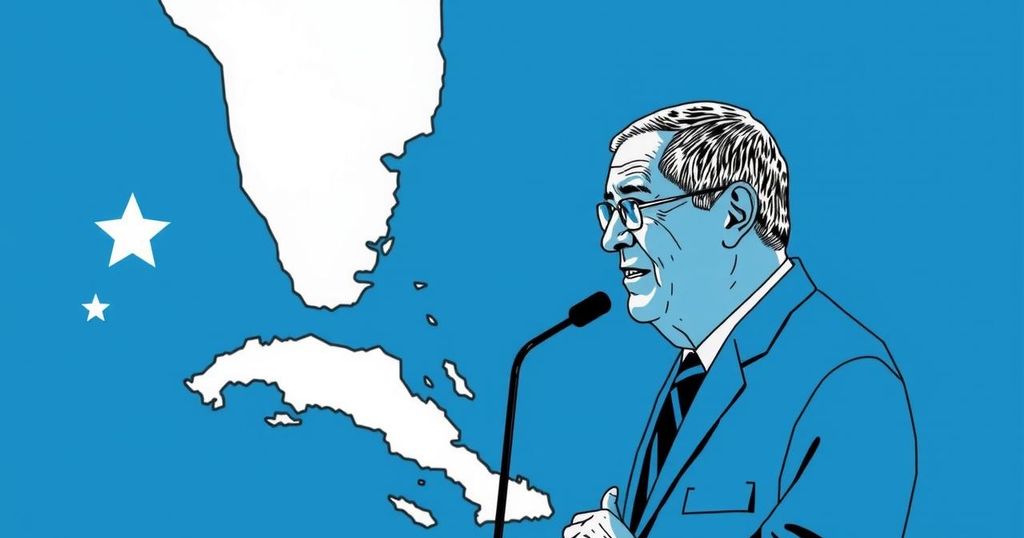Political Turmoil in Argentina: The Dismissal of Foreign Minister Dias Mondino Following UN Vote on Cuba
Argentina’s foreign minister, Diana Mondino, was dismissed after the UN delegation supported a resolution against the U.S. embargo on Cuba, angering President Javier Milei. The president, opposed to lifting sanctions, appointed Gerardo Werthein as her successor. Meanwhile, a national strike reflects growing resistance against Milei’s government amidst his appeal for diplomatic integrity aligned with Western democratic values.
In a significant political upheaval following a United Nations vote, Argentina’s foreign minister, Diana Mondino, has been dismissed by President Javier Milei. The vote, which supported a resolution to terminate the United States’ longstanding economic embargo on Cuba, contradicted Milei’s staunch opposition to lifting the sanctions. Despite the vote receiving overwhelming support from the UN General Assembly—save for the dissenting votes of the United States and Israel—Milei’s discontent was palpable. Mondino, a prominent economist and one of Milei’s earliest appointments, had been instrumental in navigating diplomatic relations with countries such as Brazil and Spain, and she had spearheaded efforts to establish dialogue with China. However, her recent alignment with a pro-Cuba resolution was incompatible with Milei’s vision for Argentina’s foreign policy, which he articulates as a reflection of the values of freedom and individual rights defined by Western democracies. Milei emphasized this directive during his announcement, stating that the Argentine government will undertake a thorough review of its foreign ministry to oust individuals perceived as advocating “anti-freedom agendas.” With the abrupt dismissal of Mondino, Ambassador Gerardo Werthein, a distinguished businessman with considerable influence within Milei’s administration, has been appointed as the new foreign minister. Furthermore, Milei’s administration faces domestic unrest, evidenced by a nationwide transportation strike that disrupted public and commercial transit, signaling potential resistance against his governmental policies. The political climate remains tense, with Milei’s governance prioritizing a diplomatic approach that aligns with his ideological framework, even amidst external pressures and criticism regarding international collaboration, particularly in relation to the UN.
The political landscape in Argentina is currently marked by President Javier Milei’s assertive approach to foreign policy, characterized by a rejection of engagements perceived to be aligned with socialist principles. The United States’ economic embargo on Cuba, active since 1960, has been a contentious issue within international relations, facing repeated calls for cessation from various global entities, including a notable UN General Assembly resolution. This context highlights the strong opposing views on foreign intervention and economic sanctions, illustrating the ideological divides that characterize contemporary diplomatic dialogues. Notably, Mondino’s role had been to navigate these waters carefully, aiming to maintain Argentina’s relationships with both traditional allies and new partners alike, such as China.
The dismissal of Diana Mondino following her support for the UN resolution to lift the embargo on Cuba marks a pivotal moment in Argentina’s foreign policy under President Javier Milei. The transition to Gerardo Werthein as the new foreign minister indicates a shifting political landscape that prioritizes a stricter adherence to ideologies associated with individual freedoms and economic sovereignty. This situation is compounded by domestic unrest, as unions mobilize against Milei’s policies, suggesting a challenging path ahead for his administration in both diplomatic relations and internal governance.
Original Source: lavocedinewyork.com




Post Comment